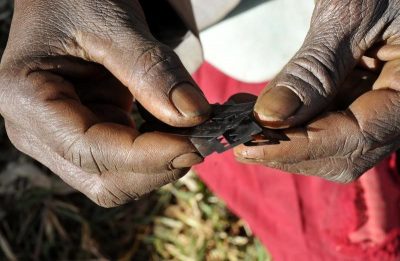James Akena/Reuters
By
Umberto Bacchi
Schools in Britain will be encouraged to teach students about female genital mutilation (FGM) to stop the practice which affects tens of thousands of girls in the country, the education minister said on Wednesday unveiling a lesson plan on the issue.
FGM involves the partial or total removal of external genitalia and can cause serious physical and psychological problems and complications in childbirth.
It affects about 200 million women and girls worldwide including an estimated 137,000 in England and Wales where FGM is practised by various ethnic minority communities, such as Somalis, Eritreans, Sudanese and Egyptians.
“A single girl affected by FGM is one too many,” said Secretary of State for Education Nicky Morgan speaking at the House of Commons, or lower house of parliament.
She said secondary schools will be able to include a course on FGM starting from the next academic year.
“Education is vital to stamping out this abhorrent practice and these resources will help schools looking to tackle these issues and protect their pupils,” she added in a statement.
Freedom, a UK-based charity, said it would send experts to schools interested in teaching pupils about the dangers of FGM, and what to do if they or their friends are at risk.
Students will also be given a copy of Cut Flowers, a novel written by Freedom’s founder Aneeta Prem, about a girl who goes to Africa to visit relatives during the summer holidays, unaware that her family plans to subject her to the ritual cutting.
Parents often use the long summer break to organise FGM for their daughters. The practice is traditionally seen as a gateway to marriage and a way of preserving a girl’s purity, experts say.
Prem said she hoped every young person in the country would get a copy of the book.
“We want everyone to know where to turn to get help. Together we can help eradicate child abuse and FGM,” she said.
FGM has been a criminal offence in Britain since 1985. New legislation in 2003 introduced a maximum prison sentence of 14 years and made it an offence for British citizens to carry out or procure FGM abroad, even in countries where it is legal.
The FGM lesson plan, which is accredited by the Personal, Social and Health Education (PSHE) Association, will not be compulsory but Morgan urged schools to “consider carefully” the need of their pupils when creating their curriculum.
“FGM flourishes in conditions of secrecy and taboo,” she said. “Cut Flowers will help bring it to light, supporting girls to speak up and to speak out and provide teachers with a valuable resource to find an end to FGM once and for all.”



No Comments Yet!
You can be first to comment this post!